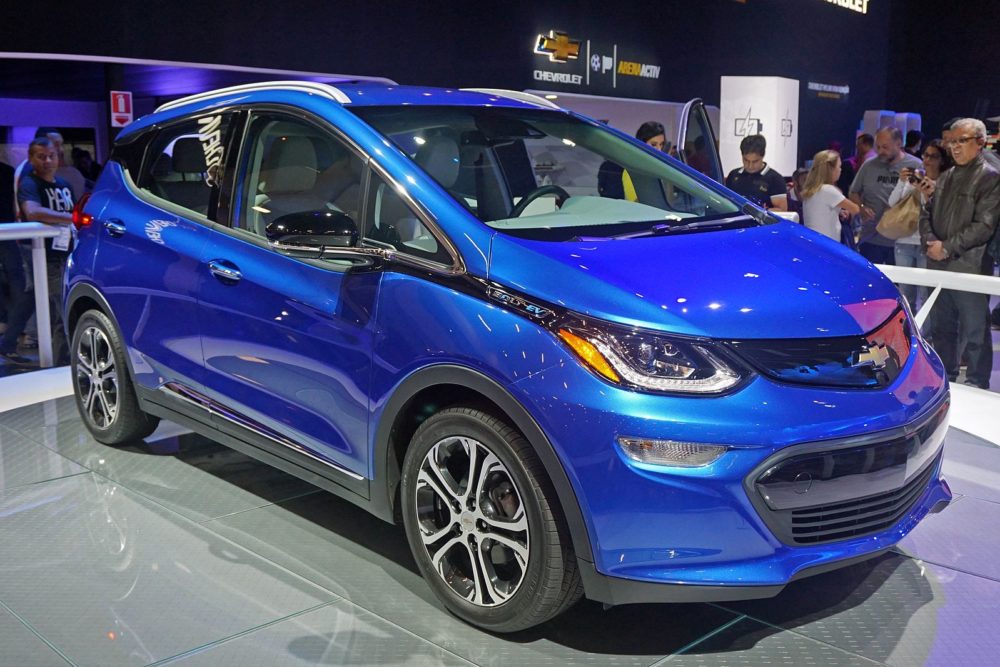Data from Britain’s motor industry’s trade association shows that diesel cars held an 18.4% of the market sales last month, while emission-free alternatives accounted for 18.5%

General Motors claims its focus will be on offering zero-emissions vehicles across a range of price points (Credit: Wikimedia Commons/Mariordo)
Electric car sales in the UK surpassed the number of purchases of diesel alternatives for the first time in September.
Data from the Society of Motor Manufacturers and Traders (SMMT), Britain’s motor industry’s trade association, shows that diesels held an 18.4% of the market sales last month, while emission-free cars accounted for 18.5%.
The news comes as the UK government is set to bring forward its ban on the sale of fossil fuel vehicles from 2040 to 2030, as the country looks to ramp up its electric vehicle fleet and reduce emissions from transport – the highest polluting sector in nation’s economy.
Positive electric car sales comes despite “weakest” September since 1999 for UK motor industry
But, despite the encouraging step forward with EV sales, the SMMT reported that Britain’s new car market dropped by 4.4% in the “weakest” September since the introduction of the dual number plate system in 1999.
The sector recorded just 328,041 new registrations across the 30-day period – which is 15.8% lower than the 10-year average of about 390,000 units for the month.
SMMT CEO Mike Hawes said: “During a torrid year, the automotive industry has demonstrated incredible resilience, but this is not a recovery.
“Despite the boost of a new registration plate, new model introductions and attractive offers, this is still the poorest September since the two-plate system was introduced in 1999.
“Unless the pandemic is controlled and economy-wide consumer and business confidence rebuilt, the short-term future looks very challenging indeed.”
Battery electric and plug-in hybrid car uptake “grew substantially” in September
The SMMT said the “poor monthly performance” follows very low volumes recorded in September 2018 and 2019, when regulatory changes surrounding the new Worldwide Harmonised Light Vehicle Test Procedure (WLTP) emissions testing regime delayed vehicle certification and caused supply problems across Europe.
While it added some brands hit by these factors previously experienced “substantial growth” in September 2020, total registrations still fell well short of previous years and follow an “erratic period of market performance” since emerging from the lockdown imposed by the government earlier this year.
Private registrations fell by 1.1% across September, while demand from business was also muted, with around 10,000 fewer cars joining larger fleets, representing a 5.8% decline.
More encouragingly, battery electric and plug-in hybrid car uptake “grew substantially” to account for more than one in 10 registrations as new models continue to “increase consumer choice”.
Demand for battery electric vehicles (BEVs) increased by 184.3% compared with September last year, with the month accounting for a third of all 2020’s BEV registrations.
But even with this growth, the SMMT believes meeting accelerated ambitions for uptake of these vehicles will require the government to “get behind a truly world-class package of incentives” – alongside binding targets on infrastructure to “reassure consumers that recharging will be as easy as re-filling”.
